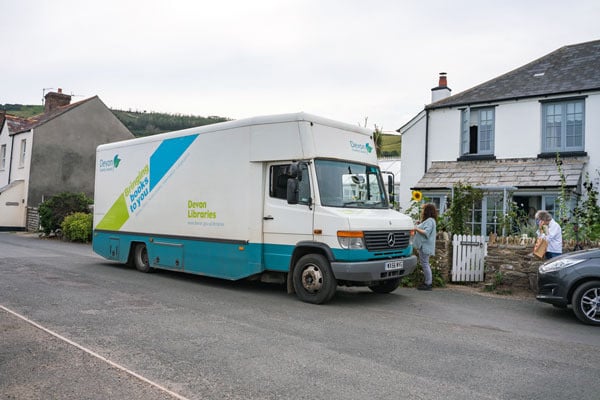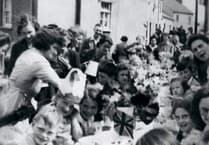COLDRIDGE Parish Council held an open meeting on Wednesday, August 9, to discuss the decision by Devon Country Council to close its mobile library service which serves rural communities across the county.
The meeting was led by Coldridge Parish Councillor John Smith and other Parish Councillors in attendance were Marion Born, Malcolm Bedford and Ivan Kriznik.
They were joined by Mid Devon District Councillor Natalia Letch and by Devon County Councillor Frank Letch.
The meeting was informed that Cheryl Cottle-Hunkin, a District Councillor in Torrington, has set up a petition which has well exceeded its initial target of 1,000 signatures and is still growing.
Comments from the meeting said that Coldridge is a remote parish, and that the visit of the mobile library provides an important service to the community, especially to those with no transport as there is only one bus a week serving the village.
It was noted that the users of the library in Coldridge ranged in age from primary school age to those over 90 years of age.
The meeting also noted the importance of the social aspect of the library, which it was agreed was impossible to quantify.
The meeting was also concerned about the environmental impact of the closure, as it would lead to more cars on the roads as individuals travelled up to 12 miles to a library, causing much more pollution and global warming than one van a month.
Keyth Richardson, Clerk to Coldridge Parish Council, explained that the meeting heard that the consultation process used by DCC “was seriously flawed”.
He explained: “It was said that the consultation was only open to library users; that not all library users were aware of it; and it did not allow anyone under 18 to complete the feedback.
“The suggestion from DCC that the number of users has declined was queried, and the number of users does not affect the cost of the service; the van will cost the same to run irrespective of the number of users.
“Several suggestions were made which could help to safeguard the service and provide extra facilities for the community.”
John Smith suggested the libraries should sell hearing aid batteries, walking stick ferrules, stamps, basic reading glasses and offer information and advice as Cambridgeshire mobile libraries do, and advertise these facilities widely.
It is expected that several of the residents present at this meeting will attend the DCC Scrutiny Committee meeting on September 28 in County Hall, which will be reviewing the decision to close the libraries, and all are welcome to attend this.
QUESTIONS
The meeting came up with a list of questions for DCC to answer, which will be put to the scrutiny committee in advance of the meeting.
Mr Richardson said that these will include:
“What contingency plans have been made in the past and what reserves have been set aside to replace the vans?
“Has DCC followed normal transport industry procedures and planned to replace one vehicle every three years, thus ensuring the fleet of four vans is replaced every 12 years, and no vehicle is more than 12 years old?
“Could DCC seek sponsorship for these, suggestions include a major bookseller such as Waterstones, or the firms who service the vans?
“Are second hand vans available for DCC to purchase?
“Has DCC looked at how Cornwall has made the vans multi-functional?
“What is the cost of staff?
“What will the cost be of making these redundant?
“What will happen to the stock of books?
“Is there any scope for volunteers to be involved?
“What research has DCC carried out on how similar rural counties have coped, such as Dorset, Herefordshire, Gloucestershire, Somerset, and Wiltshire?
“What Equality Impact Assessment has been done, and does this include those with physical and mental disabilities and those with no transport?
“Have Libraries Unlimited been asked to take on the mobile libraries, and if so, what was the result?”





Comments
This article has no comments yet. Be the first to leave a comment.